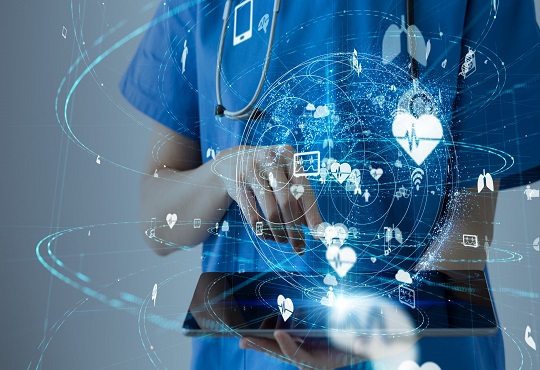How Healthcare Informatics is Revolutionizing the industry
Janifha Evangeline | Sunday, 07 May 2023, 20:19 IST

A specialised area of the healthcare sector called health informatics integrates communication, information, and healthcare with the aim of enhancing patient care. It entails using tools like health information systems to gather, store, retrieve, analyse, and use healthcare data for a range of goals. Health informatics frequently enables better collaboration and coordination between healthcare providers, streamlines medical quality assurance procedures, increases cost-efficiency in healthcare delivery, and improves facility/practice management accuracy and efficiency. Let us look at why Healthcare informatics is important and how it is going to revolutionize the healthcare industry.
Reduces Errors and Costs
Clinical Decision Support Systems (CDSS) and Computer Provider Order Entry Systems (CPOE) are examples of technologies that can prevent medical errors and lower error costs for various healthcare organisations.
The correct people's aid is needed for these improvements to be successful because they need to be knowledgeable enough to employ technical abilities and provide high-quality patient care.
Improved Coordination
Health informatics makes coordination possible by involving healthcare professionals and patient care to record, share, and disseminate records. It makes sure that nutrition, therapy, and discharge instructions connect to avoid problems. This way patients can keep track of their health status, and doctors can check the records of patients at their fingertips. Patients receive care simultaneously from multiple professionals at a go.
Store Patient records efficiently
Electronic Health Records (EHR) manages the patients’ records and allows healthcare experts to deliver better patient outcomes. Medical professionals can now store data in convenient coded computer systems. Furthermore, the workload is reducing, and manual processing is reducing day by day. By using cloud software and other tech solutions, data can be accessed from anywhere and anytime
Patient empowerment
Health informatics allows patients to have electronic access to their health history, and they can also keep track of medications and symptoms easily, users can reach the right healthcare experts and access expertise advice when needed.
Better Outcomes
Currently, most tasks are being automated. For patients, nurses, healthcare professionals, and the government, this saves time and money.
Improved Healthcare Marketing
Healthcare marketing is a distinct field that experts and marketers should be familiar with. To promote their brands, a lot of healthcare organisations use websites and social media channels.
Healthcare professionals may now check more patients and track their information from anywhere thanks to digitization. The patients can learn more about the treatment and experience through photographs and videos.
Consistent Monitoring of Cases
Hospitals can deliver information to patients to better their understanding and see conditions using a variety of applications and tools. This enables medical professionals to focus more time on urgent situations and those in need.
No Data Breaches
Data confidentiality is essential when treating a patient. Healthcare professionals perform several types of data encryption with the aid of blockchain technologies.
To increase their ROI, a number of private hospitals are currently employing various hospital management software. Hospitals are teaching their workers about patient data safety by holding training sessions, conferences, and other activities.
Future implications of health informatics
Clinical treatment, health management, illness prevention, and health policy have all been significantly impacted by the advancements in health informatics. There are signs of how health informatics is revolutionising healthcare across the following areas, even though some of those outcomes are unpredictable.
Clinical Implications
Informatics is being employed at the clinical level to enhance both the treatment given to individual patients and the health of entire populations. Health care informatics is transforming how clinicians diagnose and oversee patient care, ensuring that it is provided safely and specifically for each patient. Informatics, on a bigger scale, is enhancing the operational effectiveness of health care delivery systems by recognising patterns, forecasting outcomes, and finding service gaps and inequities between and among patient groups.
By supplying not only data but also knowledge that can be used to improve procedures, clinical results, and the overall experience for patients and clinicians, health informatics is assisting in the growth of medicine and health care innovation. These developments have caused large tech companies to concentrate their efforts on health care informatics as a sector for investment and innovation.
Information governance implications
Privacy requirements and data sharing laws will be covered by policy implications of health care informatics. The healthcare sector is trying to figure out how to progress public health efforts while maintaining patient privacy standards while the US and the rest of the globe continue to argue over the appropriate way to handle data privacy and security. What authorities choose to prioritise in the name of global health initiatives will determine a lot in the future.
Managing the vast amounts of data that now give providers improved insights into every element of care is becoming more and more important as technology has become an essential tool for delivering high-quality healthcare. With so much connected technology, there are concerns regarding access levels and how much is too much. As the capabilities and use of health care informatics continue to develop in the years to come, data privacy regulations will need to be changed and maintained.




